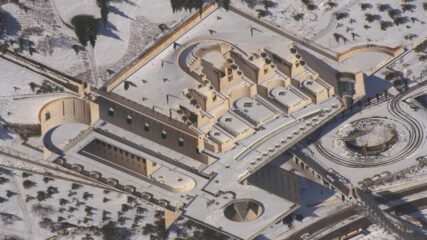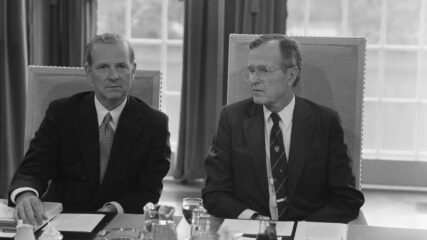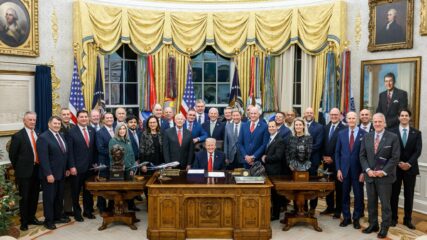August 11, 2006
Source: https://unsco.unmissions.org/sites/default/files/s_res_17012006.pdf
By the end of September 2024, Israel was seeking a least partial disarmament of Lebanon, south to the Litani River, 10 miles from Israel’s northern border. Israel could not continue to have 65,000 of its citizens out of their homes in the Israeli north, fearing for their daily lives from regular, indiscriminant Hezbollah terrorist attacks on population centers, schools, hospitals and general life. Israel ratcheted up its conflict with Hezbollah by killing dozens of its leaders and thousands of fighters and destroying only a small fraction of Hezbollah’s military depots. For more than 40 years, Israel had been harassed, shot at and bombed, with its civilians kidnapped and killed in episodic fighting between Israel and Hezbollah.
Having taken control of the Lebanese south from a weak Lebanese central government in the 1980s, Hezbollah organized itself politically and militarily, funded by Iran, perhaps with the aim of making Lebanon another Shia autocracy. Hezbollah focused all the while on assisting local Lebanese while killing Jews, degrading Israeli morale and ultimately seeking Israel’s destruction. Similar philosophies and militant actions vilifying Israel were taken by Iran, the Houthis in Yemen, Hamas and other Iranian proxies through the Middle East.
For Hezbollah to engage in a full-scale war against Israel, it would open most of Lebanon to war against Israel’s superior military forces. Israel would likewise in a major war suffer tens of thousands of casualties, with the infrastructure of both countries severely damaged. Would Hezbollah risk going to war and possibly lose a significant handle on Lebanese politics, truly not a priority for its allies in Tehran? In the interim, would Hezbollah quietly back off and withdraw beyond the Litani River? Could Israel tolerate anything less if it wants its citizens to return to their homes within 15 miles of the Lebanese and Syrian borders?
Eighteen years earlier, on July 12, 2006, Hezbollah staged a cross-border raid on Israel and abducted two Israeli patrolmen before retreating. So began what Israelis call the Second Lebanon War. The 34-day confrontation between Israel and its Iranian-sponsored Lebanese enemy concluded when the combatants accepted a cease-fire proposed by a U.N. resolution. Adopted unanimously on Aug. 11, 2006, U.N. Security Council Resolution 1701 indeed brought the Israel-Hezbollah war to an end, but it conspicuously failed to bring the Israel-Hezbollah conflict to an end, despite its ambitious intention to do just that.
With this unrealistic objective in view, the resolution made several distinct appeals, calling for Hezbollah’s disarmament and withdrawal north of the Litani River, the demarcation of the disputed Israeli-Lebanese border, the deployment of the Lebanese armed forces in southern Lebanon, and the enlargement of the U.N, peacekeeping force (UNIFIL) fielded in southern Lebanon since 1978.
Resolution 1701 was doomed to failure from the start because its central provision called for Hezbollah’s disarmament. By law, the Lebanese constitution required disarmament, and the Israeli military attempted Hezbollah’s disarmament by force. To disarm, Hezbollah would undermine its existential purpose to make war on Israel; it would have to end armed struggle against Israel and renounce its intent to eliminate Israel. Hence, a day after the resolution passed, Hezbollah announced that it would not accept — and the Lebanese government announced that it could not enforce — the resolution’s foremost provision. For the same reason, Hezbollah rejected Resolution 1701’s demand that it pull back beyond the Litani River, some 10 miles north of the Israeli border. Hezbollah, after all, would cease to be Hezbollah if it allowed southern Lebanon — the movement’s heartland and its staging ground for attacking Israel — to be declared a no-go zone.
Relative quiet reigned for a short time after the Israeli-Lebanese border war. Israel had visited devastation on Hezbollah’s positions south of Beirut and near the Israeli border, leaving Hezbollah with no desire to renew hostilities. Thus, it was Israeli deterrence, not U.N. deliberations, which brought the residents of Israel’s Upper Galilee a measure of postwar peace.
Resolution 1701 showed its core ineffectiveness because U.N. forces could not prevent Hezbollah fighters from infiltrating to Israel’s border. The resolution restored neither Lebanese sovereignty nor Israeli security; on the contrary, Hezbollah rearmed busily, replenishing its rocket arsenal many times over and emerging as the world’s best equipped nonstate actor, with an estimated 130,000 rockets and missiles of all varieties.
If any good came from Resolution 1701, it was the broadening of UNIFIL’s mandate. The resolution created a cooperative forum, the Liaison and Coordination Arrangement, that opened a channel of direct communication between Israel and the Lebanese armed forces and an indirect link between Israel and Hezbollah. This channel has, at times, prevented escalation when tensions on the Israeli-Lebanese border have flared. Yet, after the Hamas attack on Israel on Oct. 7, 2023, the resolution continued to prove unenforceable, with the United States and France trying frantically to generate a cease-fire and keep the cross-border fighting from expanding into a massive conflict.
— Ken Stein, September 27, 2024
U.N. Security Council Resolution 1701 on the War in Lebanon
(11 August 2006)
Source: https://unsco.unmissions.org/sites/default/files/s_res_17012006.pdf
The Security Council,
Recalling all its previous resolutions on Lebanon, in particular Resolutions 425 (1978), 426 (1978), 520 (1982), 1559 (2004), 1655 (2006) 1680 (2006) and 1697 (2006), as well as the statements of its President on the situation in Lebanon, in particular the statements of 18 June 2000 (S/PRST/2000/21), of 19 October 2004 (S/PRST/2004/36), of 4 May 2005 (S/PRST/2005/17), of 23 January 2006 (S/PRST/2006/3) and of 30 July 2006 (S/PRST/2006/35),
Expressing its utmost concern at the continuing escalation of hostilities in Lebanon and in Israel since Hizbollah’s attack on Israel on 12 July 2006, which has already caused hundreds of deaths and injuries on both sides, extensive damage to civilian infrastructure and hundreds of thousands of internally displaced persons,
Emphasizing the need for an end of violence, but at the same time emphasizing the need to address urgently the causes that have given rise to the current crisis, including by the unconditional release of the abducted Israeli soldiers,
Mindful of the sensitivity of the issue of prisoners and encouraging the efforts aimed at urgently settling the issue of the Lebanese prisoners detained in Israel,
Welcoming the efforts of the Lebanese Prime Minister and the commitment of the Government of Lebanon, in its seven-point plan, to extend its authority over its territory, through its own legitimate armed forces, such that there will be no weapons without the consent of the Government of Lebanon and no authority other than that of the Government of Lebanon, welcoming also its commitment to a United Nations force that is supplemented and enhanced in numbers, equipment, mandate and scope of operation, and bearing in mind its request in this plan for an immediate withdrawal of the Israeli forces from southern Lebanon,
Determined to act for this withdrawal to happen at the earliest,
Taking due note of the proposals made in the seven-point plan regarding the Shebaa farms area,
Welcoming the unanimous decision by the Government of Lebanon on 7 August 2006 to deploy a Lebanese armed force of 15,000 troops in South Lebanon as the Israeli army withdraws behind the Blue Line and to request the assistance of additional forces from the United Nations Interim Force in Lebanon (UNIFIL) as needed, to facilitate the entry of the Lebanese armed forces into the region and to restate its intention to strengthen the Lebanese armed forces with material as needed to enable it to perform its duties,
Aware of its responsibilities to help secure a permanent ceasefire and a long-term solution to the conflict,
Determining that the situation in Lebanon constitutes a threat to international peace and security,
- Calls for a full cessation of hostilities based upon, in particular, the immediate cessation by Hizbollah of all attacks and the immediate cessation by Israel of all offensive military operations;
- Upon full cessation of hostilities, calls upon the Government of Lebanon and UNIFIL as authorized by paragraph 11 to deploy their forces together throughout the South and calls upon the Government of Israel, as that deployment begins, to withdraw all of its forces from southern Lebanon in parallel;
- Emphasizes the importance of the extension of the control of the Government of Lebanon over all Lebanese territory in accordance with the provisions of resolution 1559 (2004) and resolution 1680 (2006), and of the relevant provisions of the Taif Accords, for it to exercise its full sovereignty, so that there will be no weapons without the consent of the Government of Lebanon and no authority other than that of the Government of Lebanon;
- Reiterates its strong support for full respect for the Blue Line;
- Also reiterates its strong support, as recalled in all its previous relevant resolutions, for the territorial integrity, sovereignty and political independence of Lebanon within its internationally recognized borders, as contemplated by the Israeli-Lebanese General Armistice Agreement of 23 March 1949;
- Calls on the international community to take immediate steps to extend its financial and humanitarian assistance to the Lebanese people, including through facilitating the safe return of displaced persons and, under the authority of the Government of Lebanon, reopening airports and harbors, consistent with paragraphs 14 and 15, and calls on it also to consider further assistance in the future to contribute to the reconstruction and development of Lebanon;
- Affirms that all parties are responsible for ensuring that no action is taken contrary to paragraph 1 that might adversely affect the search for a long-term solution, humanitarian access to civilian populations, including safe passage for humanitarian convoys, or the voluntary and safe return of displaced persons, and calls on all parties to comply with this responsibility and to cooperate with the Security Council;
- Calls for Israel and Lebanon to support a permanent ceasefire and a long-term solution based on the following principles and elements:
– full respect for the Blue Line by both parties;
– security arrangements to prevent the resumption of hostilities, including the establishment between the Blue Line and the Litani river of an area free of any armed personnel, assets and weapons other than those of the Government of Lebanon and of UNIFIL as authorized in paragraph 11, deployed in this area;
– full implementation of the relevant provisions of the Taif Accords, and of resolutions 1559 (2004) and 1680 (2006), that require the disarmament of all armed groups in Lebanon, so that, pursuant to the Lebanese cabinet decision of 27 July 2006, there will be no weapons or authority in Lebanon other than that of the Lebanese State;
– no foreign forces in Lebanon without the consent of its Government;
– no sales or supply of arms and related materiel to Lebanon except as authorized by its Government;
– provision to the United Nations of all remaining maps of landmines in Lebanon in Israel’s possession;
- Invites the Secretary-General to support efforts to secure as soon as possible agreements in principle from the Government of Lebanon and the Government of Israel to the principles and elements for a long-term solution as set forth in paragraph 8, and expresses its intention to be actively involved;
- Requests the Secretary-General to develop, in liaison with relevant international actors and the concerned parties, proposals to implement the relevant provisions of the Taif Accords, and resolutions 1559 (2004) and 1680 (2006), including disarmament, and for delineation of the international borders of Lebanon, especially in those areas where the border is disputed or uncertain, including by dealing with the Shebaa farms area, and to present to the Security Council those proposals within thirty days;
- Decides, in order to supplement and enhance the force in numbers, equipment, mandate and scope of operations, to authorize an increase in the force strength of UNIFIL to a maximum of 15,000 troops, and that the force shall, in addition to carrying out its mandate under resolutions 425 and 426 (1978):
- Monitor the cessation of hostilities.
- Accompany and support the Lebanese armed forces as they deploy throughout the South, including along the Blue Line, as Israel withdraws its armed forces from Lebanon as provided in paragraph 2;
- Coordinate its activities related to paragraph 11 (b) with the Government of Lebanon and the Government of Israel.
- Extend its assistance to help ensure humanitarian access to civilian populations and the voluntary and safe return of displaced persons.
- Assist the Lebanese armed forces in taking steps towards the establishment of the area as referred to in paragraph 8;
- Assist the Government of Lebanon, at its request, to implement paragraph 14.
- Acting in support of a request from the Government of Lebanon to deploy an international force to assist it to exercise its authority throughout the territory, authorizes UNIFIL to take all necessary action in areas of deployment of its forces and as it deems within its capabilities, to ensure that its area of operations is not utilized for hostile activities of any kind, to resist attempts by forceful means to prevent it from discharging its duties under the mandate of the Security Council, and to protect United Nations personnel, facilities, installations and equipment, ensure the security and freedom of movement of United Nations personnel, humanitarian workers and, without prejudice to the responsibility of the Government of Lebanon, to protect civilians under imminent threat of physical violence;
- Requests the Secretary-General urgently to put in place measures to ensure UNIFIL is able to carry out the functions envisaged in this resolution, urges Member States to consider making appropriate contributions to UNIFIL and to respond positively to requests for assistance from the Force, and expresses its strong appreciation to those who have contributed to UNIFIL in the past;
- Calls upon the Government of Lebanon to secure its borders and other entry points to prevent the entry in Lebanon without its consent of arms or related materiel and requests UNIFIL as authorized in paragraph 11 to assist the Government of Lebanon at its request.
- Decides further that all States shall take the necessary measures to prevent, by their nationals or from their territories or using their flag vessels or aircraft:
- The sale or supply to any entity or individual in Lebanon of arms and related materiel of all types, including weapons and ammunition, military vehicles and equipment, paramilitary equipment, and spare parts for the aforementioned, whether or not originating in their territories; and
- The provision to any entity or individual in Lebanon of any technical training or assistance related to the provision, manufacture, maintenance or use of the items listed in subparagraph (a) above; except that these prohibitions shall not apply to arms, related material, training or assistance authorized by the Government of Lebanon or by UNIFIL as authorized in paragraph 11;
- Decides to extend the mandate of UNIFIL until 31 August 2007, and expresses its intention to consider in a later resolution further enhancements to the mandate and other steps to contribute to the implementation of a permanent ceasefire and a long-term solution;
- Requests the Secretary-General to report to the Council within one week on the implementation of this resolution and subsequently on a regular basis;
- Stresses the importance of, and the need to achieve, a comprehensive, just and lasting peace in the Middle East, based on all its relevant resolutions including its resolutions 242 (1967) of 22 November 1967, 338 (1973) of 22 October 1973 and 1515 (2003) of 19 November 2003.
- Decides to remain actively seized of the matter.
Adopted by the Security Council at its 5511th meeting.










